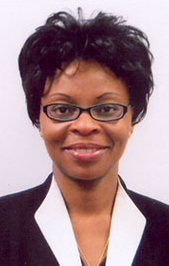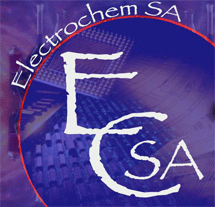 |
Plenary Speakers
 |
Prof Omowunmi "Wunmi" A. Sadik
Professor of Chemistry
Director, Center for Research in Advanced
Sensing Technologies & Environmental
Sustainability (CREATES)
(Formerly CASE-Center for Advanced Sensors &
Environmental Systems) Department of
Chemistry State University of New York (SUNY)
at Binghamton
Binghamton, NY 13902-6000
Tel: (607) 777-4132
Fax: (607) 777-4478
Lab: (607) 777-6392
E-mail: osadik@binghamton.edu
Website |
Professor Sadik is advancing the concept of sustainable nanotechnology through nanoscale control of synthesis and processing of matter without footprints that give rise to environmental degradation. She has led her team of researchers in translating basic research in biosensors to design a prototype of a portable, fully autonomous, and remotely operated sensing device, known as a U-PAC (or Ultra-Sensitive Portable Capillary Sensor). Her research has been funded by different U.S. government agencies such as the National Science Foundation (NSF), Department of Defense (DTRA) and National Institute of Standards and Technology (NIST)/Battelle, Army Research Office, Naval Research Laboratory and the Environmental Protection Agency, and by leading institutions in the private and non-profit sectors such as Procter & Gamble and the Bill & Melinda Gates Foundation. Professor Sadik holds five U.S. patents for her work on biosensors and nanostructured membranes. Her inventions are helping to drive changes in many areas such as the early diagnosis of cancer, genetic testing, pain management in hospital patients and environmental analysis.
Some of her biographical highlights are listed below:
(i) Professor of Chemistry and Director, Centre for Advanced Sensors and Environmental Systems (CASE), State University of New York at Binghamton, New York, USA.
(ii)The 2017/18 Recipient of the USA Government's Jefferson Science Fellowship.
(iii) The 2016 Recipient of the Nigerian National Order of Merit (NNOM) Award for Science.
(iv) A Fellow of the Royal Society of Chemistry, UK.
(v) A Fellow of the American Institute for Medical and Biological Engineering.
(vi) President and Co-founder of Sustainable Nanotechnology Organization. |
| |
|
 |
Prof F Marken
Dept. of Chemistry
University of Bath
Bath BA2 7AY, UK
|
Frank Marken obtained a Dr. rer. Nat. degree at RWTH Aachen (1992) and has in September 2004 been appointed to a Senior Lecturer position and in 2011 promoted to a personal chair at the Department of Chemistry, University of Bath. Research focuses on the fundamental mechanistic understanding of multi-interfacial processes and the development of novel electrochemical technologies based on nano-structures, three phase junctions, ultrasound and microwave-activation, paired and self-supported electro-organic syntheses, electrolytic diodes, and analytically relevant electrode reactions. |
| |
|
 |
Prof PGL Baker
SensorLab research group
Chemistry department
University of the Western Cape
South Africa
Tel: 021 959 3051
Email: pbaker@uwc.ac.za |
‘Electrochemistry at nanostructured semi-conductive interfaces
for real time analytical solutions’
Electrochemistry is the study of electrically stimulated semi-conductive interfaces to interrogate redox reactions, typically in solutions. In principle any compound that can be oxidised or reduced can therefore be analysed. Electrochemistry is a green technology that is fully portable and offers real time analytical data. In our research we focus strongly on the design and synthesis of novel semi-conductive nanomaterials and their application as sensor systems. Using a combined electro-analytical approach we develop the next generation of technological solutions to address analytical challenges in environmental impact assessment, developing diagnostic tools for point of care solutions, as well as energy generation and storage.
About the speaker: Professor Priscilla Baker is co-leader of SensorLab, an electrochemistry research group in the department that focuses on the fundamental and applied electrodynamics of materials and sensors. Her specialisation is in the application of frequency modulated electrochemical techniques, notably electrochemical impedance spectroscopy. Baker collaborates with researchers in US, Germany and France, partnerships that lead to numerous student exchange opportunities. She is also an active member of two research consortia funded by the Seventh Framework Programme (FP7) of the European Commission. She has participated in international teaching and training programmes at Wales University, Coimbra University and University of Cergy Pontoise. Baker has supervised 50+ Honours, MSc, and doctoral researchers as well as post-doctoral fellows. Baker was announced Winner of the Department of Science and Technology, Distinguished Woman Scientist award in the category Physical and Engineering Sciences (2014) and in the same year she was awarded the Deputy Vice Chancellor’s Young researcher Award, by the University of the Western Cape. |
| |
|
| |
|
|
 |
 |




